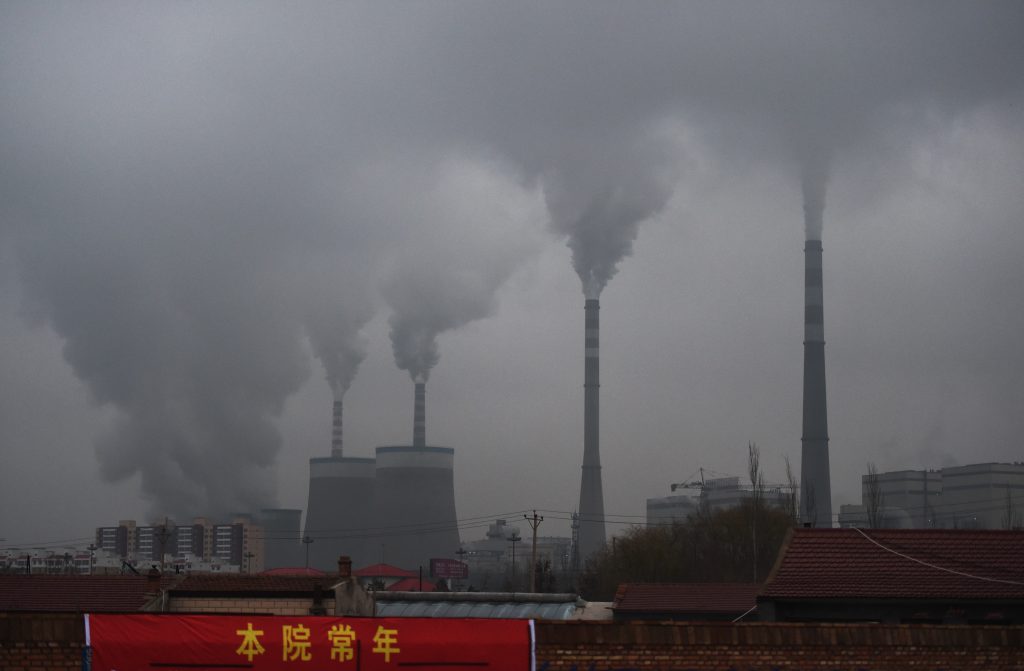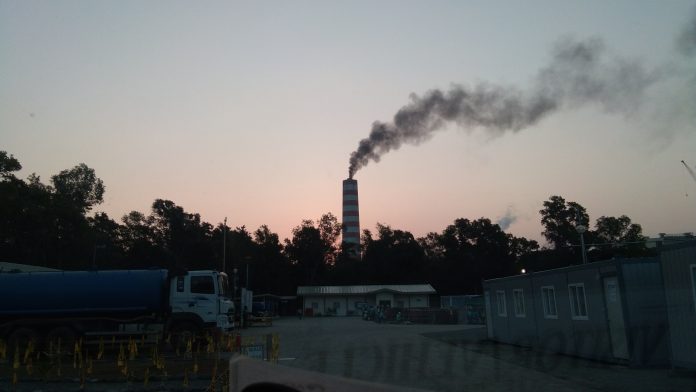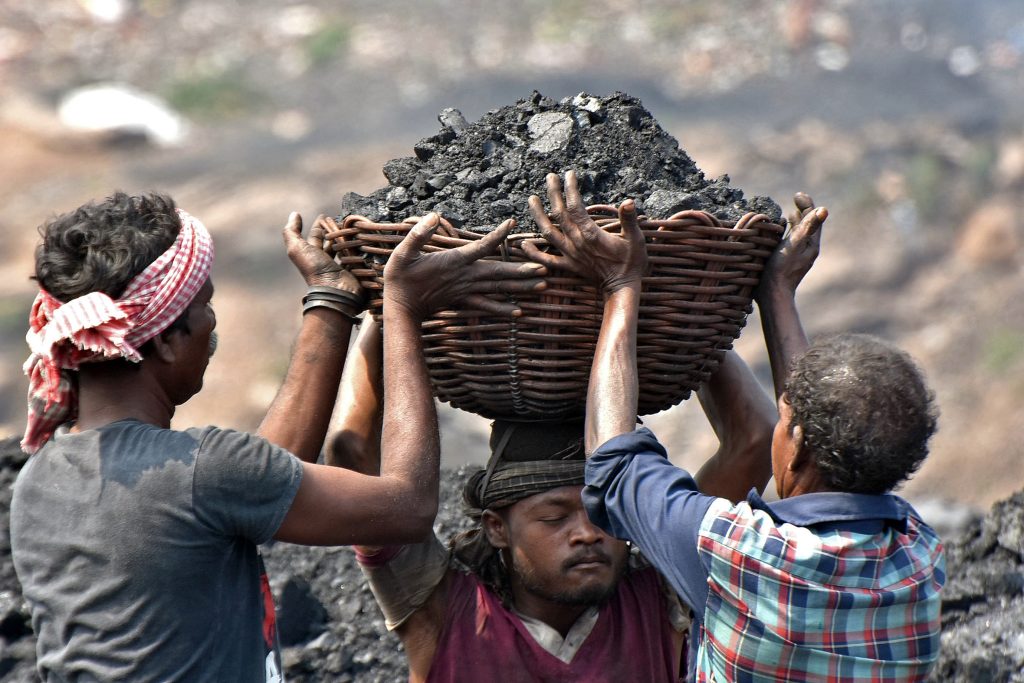China has vowed to sharply curb carbon emissions by 2060 but the country’s need for coal means that for the immediate future the emissions will actually rise.
China joined the United Nations Climate Summit in Glasgow ranking as the world’s largest greenhouse gas polluter.
Based on a survey taken three years ago, China has also ranked for some time as the world’s biggest coal supplier, followed by India, the United States, Indonesia, and Australia.
But China is now promising to end the usage of fossil fuels before 2060.
Also on the positive side, the United States and China made a surprise announcement on Nov. 10, pledging to work together to slow global warming during this decade and ensure that the Glasgow talks meaningful progress.
According to a Washington Post report, the world’s two biggest greenhouse gas emitters said they would take “enhanced climate actions” to meet the goals of a climate accord reached in Paris in 2015.
Still, as The Post notes, the declaration was “short on firm deadlines or specific commitments.”
According to The Wall Street Journal, however, “China’s climate pledges are bumping up against realities on the ground.”
In late August, China’s top climate and energy official, vice premier Han Zheng, convened an online meeting of provincial leaders, admonishing them to “resolutely curb the blind development” of high carbon emissions projects like coal plants.
But then, amid coal shortages and power outages, Han told leaders of state-owned energy companies that while these curbs were still important, their priority was to get coal-power generators cranking again, according to The Journal.

Xi stays away
In a meeting held in Rome on October 31, representatives of the world’s leading economies made only limited progress over how to cut greenhouse gas emissions.
This has created low expectations for any breakthrough to come on the issue during high-level United Nations climate talks being held in Glasgow this month.
China’s leader Xi Jinping was the only leader to address the opening high-level part of the conference in a written statement.
It’s not clear why Xi had chosen not to attend. But this obviated the need for him to answer any troublesome questions or engage in any give-and-take.
Meanwhile, Australia’s Prime Minister Scott Morrison unveiled plans to decarbonize his country’s economy by 2050 while at the same time insisting that Australia won’t phase out the production or use of fossil fuels.
According to a report in the Financial Times, fossil fuels accounted for more than 90 percent of Australia’s primary energy mix in 2019-2020, with renewable energy sources making up just seven percent.
Despite pressure from activists, Morrison has stuck to his refusal to update Australia’s formal 2030 emissions reduction target.
Net Zero would be achieved “the Australian way…through technology not taxes,” Morrison said on October 26.
This, he said, meant “respecting people’s choices and not enforcing mandates on what people can do and buy…(while also) keeping our industries and regions running.”

Not on track
Australia has been under international pressure to commit to serious climate change measures.
But Morrison said that Australia “won’t be lectured to by others who don’t understand Australia.”
On October 31, leaders from the G20 nations, who represent the world’s biggest coal producers and consumers, agreed to stop financing coal-burning plants overseas.
But their communique included no new commitments to curb the use of coal domestically.
The leaders also pledged “to pursue efforts” to limit the global average temperature rise to within 1.5 degrees Celsius by the end of this century, compared with preindustrial times.
But according to reporting by The New York Times, “the world is currently not on track to achieve that goal, which scientists say is necessary to avert the worst effects of climate change.”
According to the Times, “this stark fact weighs over the Glasgow climate summit, raising fears that the summit will yield similar half-steps.”
Deciding how developed and developing nations divide the task of achieving climate targets under an accord reached in Paris in 2015 poses a major challenge.
The US and Europe were seen as pushing China, India, and other developing nations to commit to earlier reductions in coal usage and carbon emissions.

Coal is king in India
But developing nations such as India responded that wealthy nations should do more to counter climate change and are demanding a big increase in financial support from the developed world.
Meanwhile, the state-owned enterprise Coal India is among the five largest coal-mining companies in the world.
The coal sector in India is a major source of revenue for the country’s states as well as for the central government.
While renewable energy capacity has dramatically increased in India, coal still provides about 70 percent of the country’s electricity.
Last year, Prime Minister Narendra Modi’s government sought to boost the country’s coal mining industry with a series of commercial auctions.
The Indian government has also repeatedly delayed the implementation of pollution regulations for coal plants, effectively throwing the dirtiest coal plants a lifeline.
In Indonesia, Southeast Asia’s largest country, the “green electricity plan” sounds good at first glance. But activists say that it still calls for a large portion of country’s energy to come from coal.
Meanwhile, the Rome summit’s final communique included no new commitments to phase out coal use domestically or to end fossil-fuel subsidies.
G20 leaders agreed to halt public financing of new coal-fired power plants overseas, albeit only power plants that aren’t outfitted with technology to capture and store carbon dioxide emissions.
The G20 nations also for the first time pledged to reduce G-20 methane emissions significantly.
UK Prime Minister Boris Johnson told the conference “these commitments, as welcome as they are, are [only] drops in a rapidly warming ocean.”
Dan Southerland is RFA’s founding Executive Editor.
Copyright © 1998-2020, RFA. Used with the permission of Radio Free Asia, 2025 M St. NW, Suite 300, Washington DC 20036. https://www.rfa.org.






